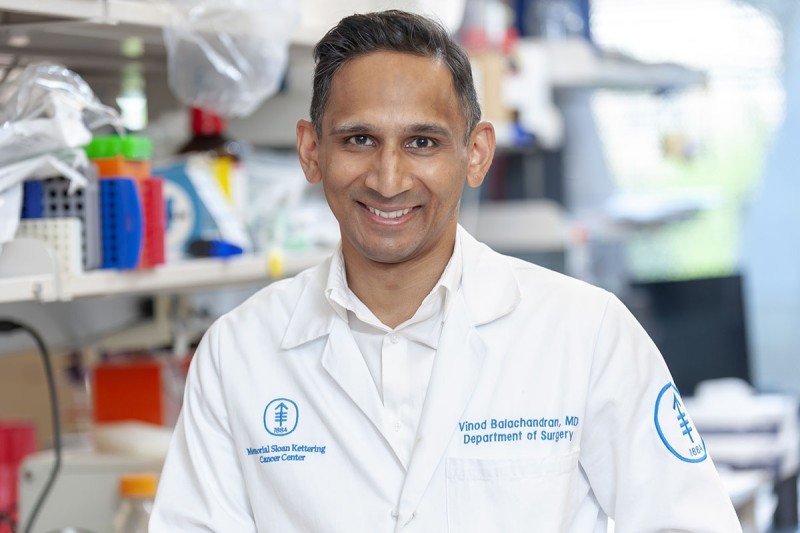
Cancer vaccines that use messenger RNA (mRNA) technology are an exciting new approach to develop immunotherapies for cancers with poor prognoses, such as pancreatic cancer.
There is a tremendous, urgent need for new treatments for pancreatic cancer. Although the discovery of immune checkpoint inhibitors has brought significant advances for several treatment-refractory cancers, these drugs work in approximately 20% of patients. At present, pancreatic cancer is one of most resistant cancers to immune checkpoint inhibitors. It is also largely resistant to other available chemotherapies, radiation, and targeted therapies; therefore, the five-year overall survival rate is only 10.8%. (1) Pancreatic cancer is estimated to become the second leading cause of cancer-related death in the United States by 2025. (2)
Learning from Long-Term Survivors Sparks Collaboration
In 2015, my colleagues and I at Memorial Sloan Kettering Cancer Center began to study a rare group of pancreatic cancer patients who survived long-term despite receiving the same treatments as other patients who had poor outcomes. We hypothesized that studying why these rare patients had exceptional outcomes could provide clues for developing new therapies.
In 2017, we discovered that these long-term survivors mounted an exceptionally strong immune response against their tumors. Specifically, they had many more T cells in their tumors that correlated to greater long-term survival. (3) Interestingly, these T cells recognized proteins called neoantigens that arose in mutations unique to each individual tumor. Fascinatingly, these T cells persisted in the blood for many years, which suggested custom-made vaccines targeting specific neoantigens could be a new immunotherapeutic approach to treating pancreatic cancer. Based on the features a custom-made vaccine would require, we concluded that mRNA vaccines would be the optimal choice.
Our research was an interdisciplinary collaboration among experts from the Department of Surgery, the David M. Rubinstein Center for Pancreatic Cancer Research, the Parker Institute for Cancer Immunotherapy, the Human Oncology and Pathogenesis Program, and the Immunogenomics and Precision Oncology Platform, all at MSK.
Soon after we reported our findings, we launched a collaboration with Uğur Şahin, cofounder and CEO of BioNTech, the company that would go on to use mRNA to make the first vaccine against COVID-19, to develop mRNA vaccines for pancreatic cancer. As neoantigens are unique to each cancer, we worked with BioNTech to develop a strategy to make custom vaccines based on the neoantigens in each patient’s tumor and deliver them rapidly.
Our Phase 1 Study: mRNA Vaccines for Pancreatic Cancer Patients

Our phase 1 trial, the first study to test mRNA vaccines in pancreatic cancer, opened in November 2019 with the goal to test the safety of custom mRNA vaccines after surgery in 20 patients with pancreatic cancer (NCT04161755).
The study involved several steps. First, our team of surgeons at MSK in New York performed surgery to remove each patient’s pancreatic cancer. Then, we rapidly shipped the tumors to BioNTech in Germany, who then identified unique neoantigens in real time and manufactured custom mRNA vaccines for each patient. About six weeks after surgery, each patient received a single dose of the checkpoint inhibitor atezolizumab (TECENTRIQ®), which blocks the PD-L1 protein and has been shown to increase the efficacy of neoantigen vaccines in preclinical models. Approximately nine weeks after surgery, each patient received their customized mRNA vaccine, followed by a standard 12-cycle regimen of mFOLFORINOX chemotherapy.
This trial built on years of multidisciplinary basic and translational research that led to the development of mRNA vaccines and a better understanding of pancreatic cancer biology. Despite having to conduct such a complex clinical trial in the middle of a global pandemic, we completed the trial in 18 months, a full year ahead of schedule — thanks to our phenomenal staff and brave patients. We are excited to now learn from these early studies on harnessing the power of mRNA to fight both pancreatic cancer and other immunotherapy-refractory cancers.
Learn More About How MSK Is Advancing Pancreatic Cancer Research
At MSK, multidisciplinary experts within the David M. Rubinstein Center for Pancreatic Cancer Research are dedicated to improving the lives of people with pancreatic cancer.
MSK frequently offers clinical trials of therapies not available at other centers. For example, in April 2021, we opened a first-in-human phase 1 study investigating the best dose for the investigational cancer vaccine ELI-022 for patients with pancreatic adenocarcinoma, colorectal cancer, bile duct cancer (cholangiocarcinoma), or gallbladder cancer with mKRAS or mNRAS mutations. For more information about this study and to inquire about eligibility, please contact Eileen O’Reilly, MD, at 646-888-4182.
Learn more about MSK trials currently enrolling new patients.
Dr. Balachandran discloses no relationships or financial interests in organizations outside of MSK.

